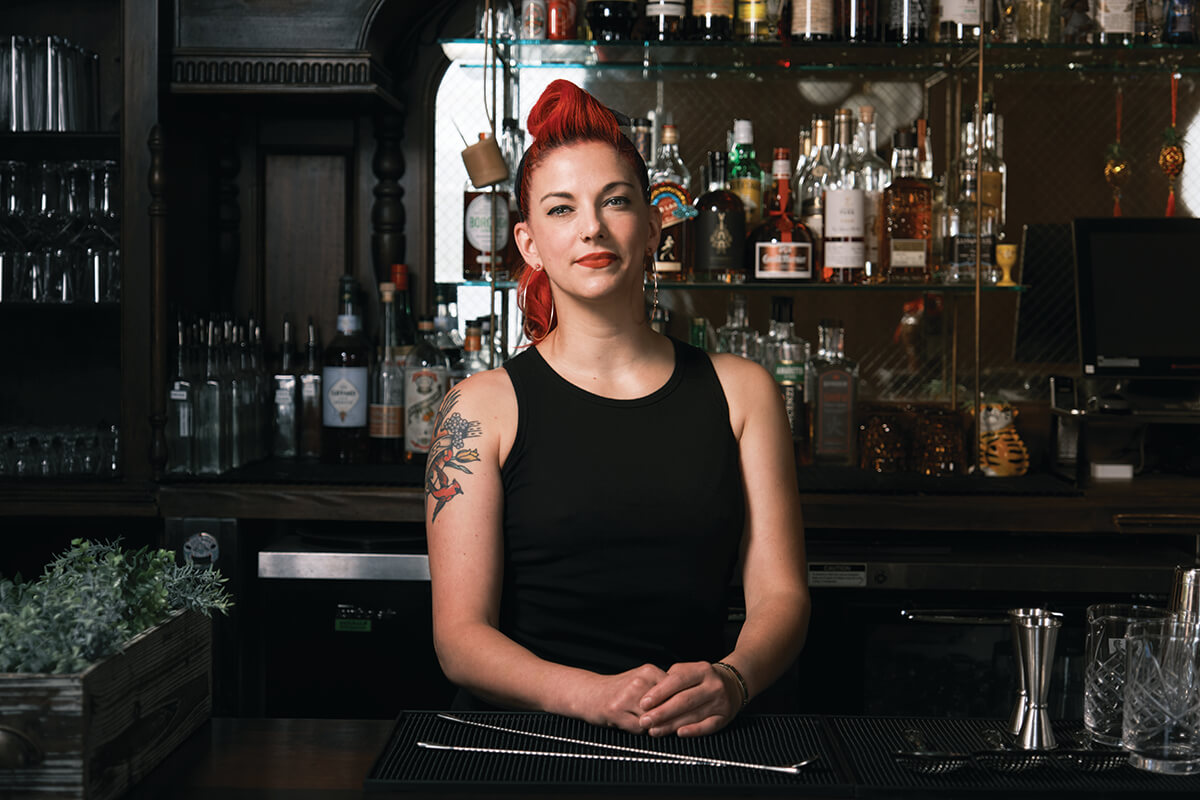Food & Drink
Amie Ward Provides Health and Wellness Resources to Folks Behind the Bar
The "Healthtender" combined her bartending background with her physical fitness and wellness training to create a program specifically tailored to those in the hospitality industry.

Amie Ward came up with the concept of becoming “The Healthtender” when she realized that people in the hospitality industry, especially bartenders, were under an enormous amount of physical and mental stress. Both alcoholism and even suicide were alarmingly prevalent in her industry. She decided to combine her background as a bartender with her 20 years of training in the physical fitness and wellness arena to create a program specifically tailored to those folks behind the bar.
Why did you see a need for mental health and wellness resources in the hospitality industry?
I started my programming back in 2015 because I had been seeing this disconnect between the amount of labor that we put in each day as bartenders, but how little we were taking care of ourselves. We’ve lost people in the industry as a result of suicide or because of complications from alcoholism, and that kind of took it to the next step of teaching people about trying to be a little bit more mindful about the way that they’re drinking and what’s actually happening to your body on a physical level when you’re drinking.
Was there a pivotal experience that made you realize you wanted to start improving the industry?
The Baltimore Bartenders Guild would do a monthly education event, and in December of 2015, I got up to talk about how to give yourself proper nutrition when you’re on a marathon shift. This woman named Lindsey Johnson, who runs a company called Lush Life Productions, was there. And she’s like, “You have to do this,” and that kind of inspired me to start putting together my business plan for The Healthtender.
How did it feel to be recognized as someone who could supply a need for not just your community, but the global bartender community?
There was definitely validation. I want people to feel good in their skin, I want people to feel good with their bodies and just be able to listen to their bodies and really understand that better. It’s been wild and it’s been awesome and I’m so happy that I do this.
What are some of the services that you offer to bartenders?
Lots of movement classes, stretching classes, mobility classes, boxing, because I love boxing. But my biggest thing and the thing I’m most proud of is being able to make classes that are adapted to every type of body. So making people who would never find themselves in any kind of gym setting or whatever feel really comfortable about it. I’m not a nutritionist, but I can teach people how to meal-plan. I am a Mental Health First Aid instructor as well.
What do you recommend as a good first step for bartenders if they are interested in improving their overall wellness?
Would you like to eat a little bit better? Would you like to move your body better? Would you like to feel less pain? I think taking a mental inventory of what’s going on in your world is a good start. I love when people just come to talk to me first because I always will talk to people for free without any reservation to find out what their needs are and kind of send them in the right direction.
How would you describe the community you’ve built?
This is just a group of humans that genuinely care, support, and want to see each other survive, thrive, and grow in their own journeys. It’s just so supportive, and it’s really the way that I want to see the industry going when it comes to mental health and being able to create that community literacy on the topic of de-stigmatizing sobriety, addiction, and the pursuit of mental health.
What are your hopes for the restaurant and hospitality industry in the future?
I really want a shape-shifting of the entire culture and the landscape of hospitality. I want health insurance to be a normal thing. I want five-day workweeks or 40-hour workweeks to be a normal thing. I want owners to pay their bartenders appropriate equitable wages. I want people who are generally more vulnerable as a population or in a marginalized identity put to the forefront so they can actually be the leaders that they were designed to be. I want the hospitality industry to prioritize people rather than profits.